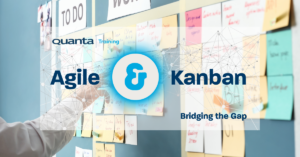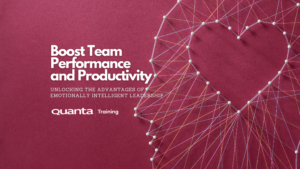Understand what DevOps is and how the DevOps movement can help your organisation realise more value from IT investment.
The DevOps Foundation® course provides a comprehensive understanding of DevOps principles, practices, and tools. It covers the latest trends, including AIOps, DevSecOps, and Generative AI, and explores their impact on modern software delivery. By mastering the concepts of continuous integration, continuous delivery, and the Three Ways, learners can streamline workflows, improve collaboration, and accelerate innovation. This certification is designed for a wide range of professionals, from business leaders to technical experts, enabling them to drive digital transformation and achieve business objectives.Book a Private Event
If you require the content of this event tailored or have around 7 or more people to train it maybe better for you to host a Private Event, please get in touch to discuss this.
Get in touchDescription
Who is this course for
The course is for anybody that is working or will be working in a DevOps environment and that needs to know more about what makes a DevOps organisation function and how to engage with it, includeing Management, Operations,
Developers, QA, and Security professionals.
You will learn how to
- DevOps objectives and vocabulary
- Benefits to the business and IT
- Principles and practices including Continuous Integration, Continuous Delivery, testing, security and the Three Ways
- DevOps relationship to Agile, AIOps, Generative AI, Lean, ITSM, VSM, SRE and Platform Engineering
- Improved workflows, communication and feedback loops
- Automation practices including deployment pipelines and DevOps toolchains, AIOps and Generative AI use cases
- Scaling DevOps for large organizations
- Critical success factors and key performance indicators
- AI Use cases
- Real-life examples and results
Prerequisites
There are no prerequisites for attending the DevOps Foundation course. Any previous knowledge of Lean or Agile concepts, development and operational work or IT Service Management may be beneficial but is not required.Benefits for you as an individual
- Shorter development cycles, faster innovation
- Reduced deployment failures, rollbacks, and time to recover
- Improved communication and collaboration
- Increased efficiencies
- Reduced costs and IT headcount
Benefits for your organisation
- Common DevOps concepts and terminology
- Benefits to the business and IT
- Continuous Integration, Continuous Delivery, testing, security and the Three Ways
- DevOps relationship to Agile, Lean and ITSM
- Improved workflows, communication, and feedback loops
- Automation practices including deployment pipelines and DevOps toolchains
- Scaling DevOps for the enterprise
- Demonstrate entry-level of DevOps knowledge
Module 1: Exploring DevOps
- Defining DevOps
- Why Does DevOps Matter?
- The Business Perspective
- The IT Perspective
Module 2: Core DevOps Principles
- The Three Ways
- The Theory of Constraints
- Chaos Engineering
- Learning Organizations
Module 3: Key DevOps Practices
- Continuous Testing, Integration, Delivery, Deployment
- Site Reliability & Resilience Engineering
- DevSecOps
- ChatOps
- Monitoring & Observability
- Value Stream Management
- Platform Engineering
Module 4: Business and Technology Frameworks
- Agile
- ITSM
- Lean
- VSM
- SRE
- Safety Culture
- Learning Organizations
- Continuous Funding
Module 5: Culture, Behaviors & Operating Models
- Defining Culture
- Cultural Debt
- Behavioral Models
- Organizational models
Module 6: Automation, Lean & Architecting DevOps Toolchains
- CI/CD
- Infrastructure as Code
- Cloud, Containers, and Microservices
- Machine Learning
- DevOps Toolchains
- Value Stream Management Platforms
- Platform Engineering
- Generative AI Use Cases
Module 7: Measurement, Metrics, and Reporting
- The Importance of Measurement
- DevOps Metrics - Speed, Quality, Stability, Culture
- Change lead/cycle time
- Value Flow Metrics
- DevOps Dashboards
- AIOps
Module 8: Sharing, Shadowing and Evolving
- DevOps Days
- DevOps in the Enterprise
- Roles
- DevOps Leadership
- Organizational Considerations
- Getting Started
- Challenges, Risks, and Critical Success Factors
Additional Exam Information
- Exam Duration - 60 Minutes
- 40 Multiple Choice Questions
- Open Book
- 65 % - Pass Mark
If you are attending a Face to Face course your exam will be a paper-based exam during your course.
If you are attending a Virtual course you’ll be issued an exam voucher to take the exam at a time of your choosing. Please see PeopleCert’s website for the security requirements for the web based exam driver.
This course is eligible for the PeopleCert Take2 scheme, please discuss at point of booking if this is of interest to you.
Please note - it is compulsory to purchase the exam, although discretionary whether you take it.
Get Started
Forget trawling through endless course catalogues – Find the training that’s right for you
Learn MoreLatest from our blog
Kanban and Agile: Bridging the Gap
Kanban and Agile: Bridging the Gap Quanta’s Kanban University Certified Trainer Steve Church explores the way in which Agile and…
Read More
How a Ballerina could move into Cybersecurity
Jason Ford, Quanta Cybersecurity and IT Trainer talks about the limitations in Cybersecurity Training courses. Jason discusses a safe and…
Read More
Boost Team Performance and Productivity: Unlocking the Advantages of Emotionally Intelligent Leadership
Quanta People Development and Leadership Trainer, Giles Collins outlines the key elements of Emotionally Intelligent Leadership and how it impacts…
Read More





